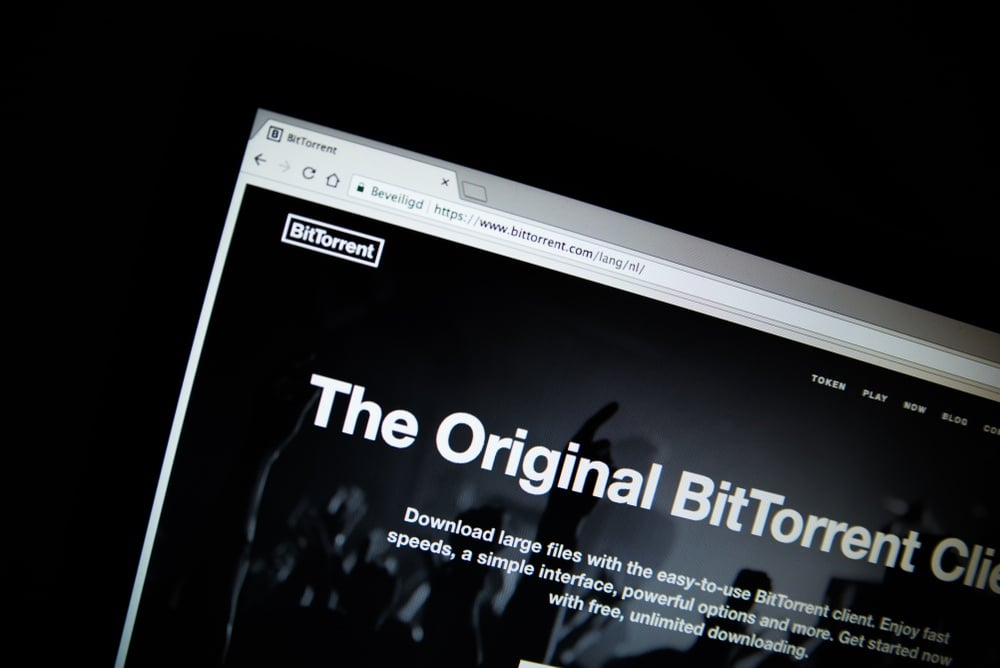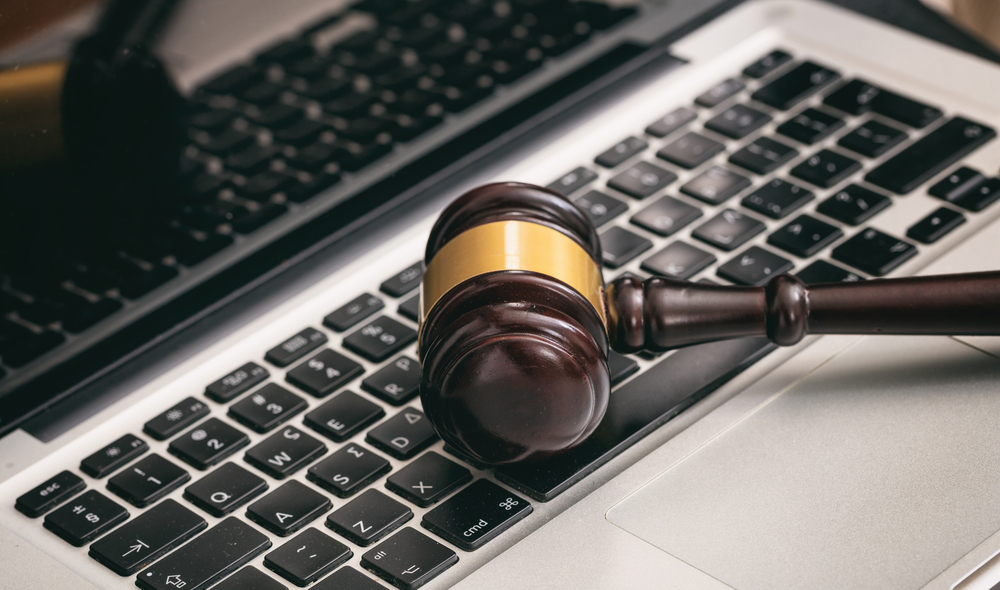Did TRON Acquire a Liability in $126 Million Purchase of BitTorrent? A Record 3,300 Lawsuits Hits Platform’s Users

A record 3,300 lawsuits were filed against BitTorrent users in the United States in 2018. TRON purchased the platform for $126 million last year. Will the latter be impacted by mere association? | Source: Shutterstock
According to The National Law Review and TorrentFreak, more than 3,300 lawsuits have reportedly been filed against BitTorrent users for copyright infringement.
“Data collected by TorrentFreak from court records all over the country show that in the first half of the year, more than 3,300 separate lawsuits were filed. The majority of these cases list a single ‘John Doe’ defendant,” read a TorrentFreak report .
A case against a single “John Doe” refers to a lawsuit filed against an individual suspected of downloading a piece of content on the peer-to-peer BitTorrent protocol without the authorization of the content creator.
Recently, TRON acquired BitTorrent in a nine-figure deal (an estimated $126 million in an all-cash purchase) and launched BitTorrent Token (BTT) on Binance LaunchPad. Will TRON be affected by the lawsuits against BitTorrent users in any way?
Not Against BitTorrent, Not Associated With TRON
Given that the majority of the 3,300 lawsuits are against single John Doe defendants, TRON is not responsible for nor affected by the lawsuits.
The cases are filed against the users of BitTorrent that allegedly downloaded content in an illicit manner, breaching copyright laws in the U.S.
As Jaliz Maldonado at The National Law review explained :
On the one side are lawyers suing on behalf of artists, creators, and media conglomerates. On the other are attorneys whose job it is to defend the vast swathes of the public who have downloaded copious amounts of content — music, movies, video games, computer applications, etc. — without paying for it first.
Fortunately, for TRON, the copyright infringement cases are not filed against BitTorrent but the individual users of the protocol instead.
While TRON is not directly related to the cases, the substantial increase in the number of BitTorrent-related lawsuits presents a concern for BitTorrent and its parent company TRON as it may lead to an overall decline in usage of and demand for the product.
If users are at risk of getting sued when downloading content on BitTorrent, especially in a region like the U.S. wherein copyright laws are strictly imposed, the protocol could become less favorable to a wide range of users.

The exponential increase in the user activity and popularity of streaming platforms like Netflix and Spotify have also eliminated the necessity of downloading popular content such as movies and music using torrent files, risking copyright infringement and costly lawsuits.
For BitTorrent and its users, one case that was overseen by a District Judge Michael H. Simon in which the court concluded that an IP address connection is not sufficient to allege an individual for copyright infringement established a positive precedent throughout the long-term.
Although the court case is unlikely to decrease the number of lawsuits filed against torrent users in the years to come, it has created a more difficult environment for companies to purposefully target torrent users.
“Because multiple devices and individuals may be able to connect via an IP address, simply identifying the IP subscriber solves only part of the puzzle. A plaintiff must allege something more to create a reasonable inference that a subscriber is also an infringer,” Judge Simon said.
The District Judge further emphasized that the plaintiff will have to prove that the torrent user intentionally committed copyright infringement, which is challenging to prove with solid evidence.
TRON is Fine But Torrent Users May Decline
BitTorrent Token launched with extremely high demand from investors in the cryptocurrency market and the token sale sold out in minutes.
But, despite the overwhelming interest in BTT, some analysts suggested that casual users may struggle at efficiently using the token to perform various activities on the protocol.
https://twitter.com/ZeusZissou/status/1091257164952350721
It remains to be seen whether the case ruled by District Judge Michael Simon will lead to a noticeable decline in BitTorrent-related cases. If it doesn’t, there exists a risk that the usage of the protocol, at least in the U.S., could decline in the near-term.